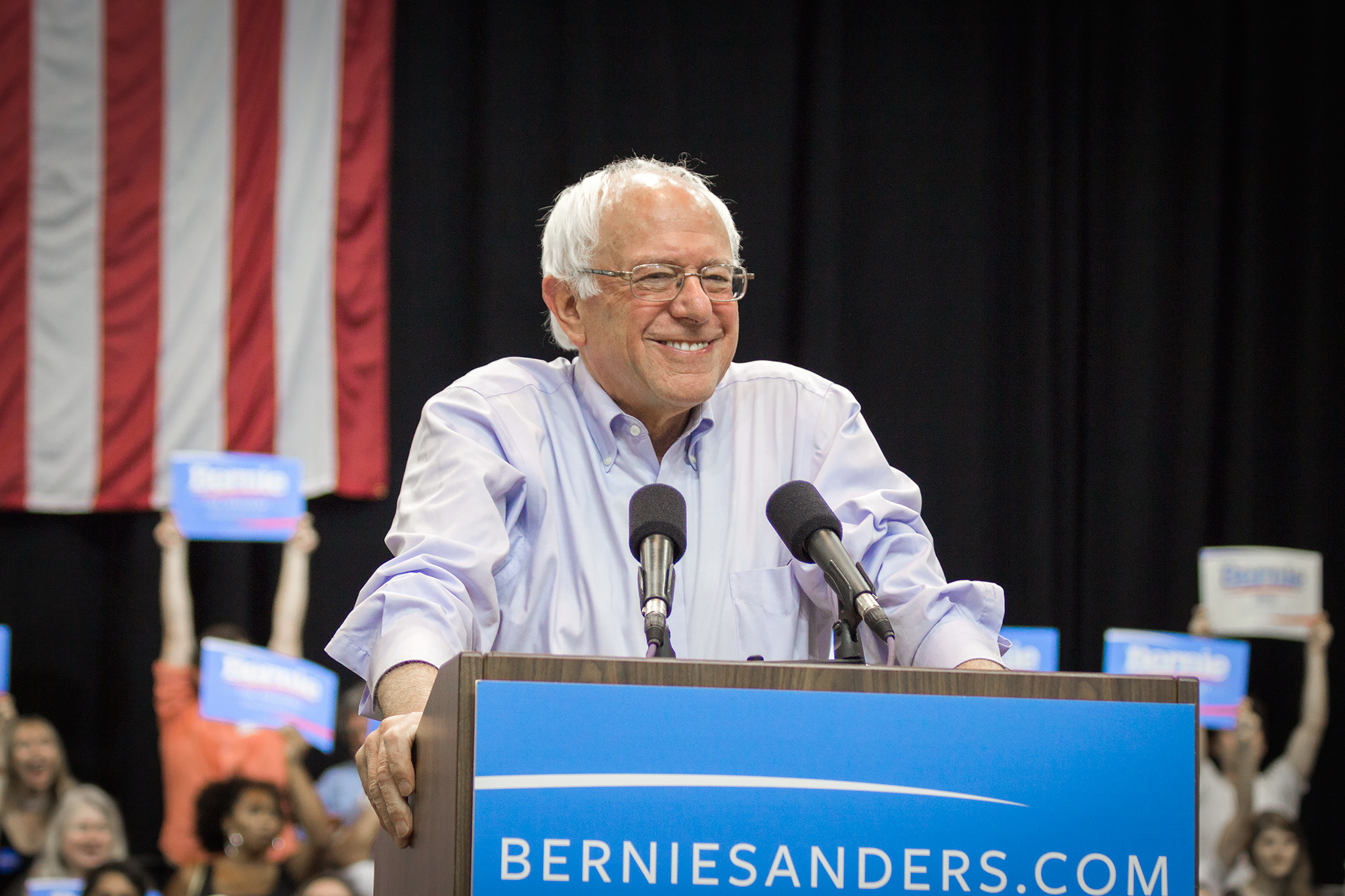Like this article? rabble is reader-supported journalism. Chip in to keep stories like these coming.
After the disastrous showing in the last federal election, the NDP must again undergo a real soul-searching. The attempt to imitate a centrist liberal party proved to be a dead end.
Meanwhile, after his landslide victory in the New Hampshire primary, Bernie Sanders has emerged as a major contender in the U.S. presidential race and has put “Canada’s progressive opposition” to shame. As the NDP struggles to find its purpose again, here are some lessons I think can be taken from the Sanders campaign:
1) Stand boldly and clearly for what you believe in
Sanders doesn’t shy away from expressing unabashedly left-wing ideas and many appreciate his honesty and consistency. Replace the inadequate Obamacare with single-payer healthcare. Invest $1 trillion in infrastructure to create millions of jobs. Make public colleges and universities tuition free. Nearly double the minimum wage to $15 an hour.
Meanwhile, Sanders does not talk about cutting taxes for small business and hiring more cops, or prattle on about the “need” to immediately balance the budget before embarking on any bold initiatives.
2) Shift the debate leftward
Pundits and political strategists maintain that in order to win votes, parties and candidates must move to the political centre because that’s where the voters are. Certainly, NDP strategists are instinctually driven to move to the “centre.”
Yet the centre is not static and what’s considered politically “realistic” or “acceptable” can shift. The right has tended to understand this better than the left. The conservative movement was successful in moving what is called the Overton Window — the current spectrum of mainstream policy options — to the right.
Conservatives shifted the Overton Window rightward by repeatedly and unequivocally expressing positions that were beyond the pale of acceptable debate. The same can, and must, be done on the left. Instead, for too long progressives have distanced themselves from more “radical” positions and have accepted the narrow parameters of political debate under neoliberalism.
3) Occupy Wall Street has shifted the debate
The Occupy movement put growing inequality between the rich and everyone else and the influence of big money in politics on the agenda. Certainly the Occupy movement has built the ground for the Sanders campaign.
Occupy opened up space for discussion about economic alternatives. Ironically, the NDP just recently removed references to “socialism” from the party constitution on the grounds that such language is old-fashioned. Sanders, meanwhile, is a self-professed “democratic socialist” and a significant number of young Americans view socialism favorably. The NDP should take note.
4) Don’t try to please the mainstream media
NDP supporters have long complained how the mainstream media is biased against their party. Yet the NDP desperately seeks the approval of the media, going out of the way at election time to show how they’ve changed, how they’re “fiscally responsible,” how they’re not like the old NDP.
The Sanders campaign until very recently was for the most part ignored by the media. Sanders has not watered down his message in order to please what he refers to as the “media establishment.” He seems to have done quite well in spite of this.
5) Tax is not a four letter word
There’s no way around it: countries with the most developed welfare states and lowest levels of inequality pay much higher taxes than we do in North America.
With income and wealth inequality is at the highest level we’ve seen in our lifetimes, Sanders is calling for significant tax hikes on the wealthy, with the creation of new tax brackets for very high incomes, as well as a tax on Wall Street speculation.
However Sanders has also crossed the “third rail” of politics and called for increased taxes in order to pay for single payer healthcare for all. He makes the point simply and clearly that while taxes will go up, most Americans would save money with the removal of all health insurance premiums. In other words, we’re better off paying for collective provision, paid from taxation, rather than leaving it to the market. This is an argument that progressives can and must win.
For too long however, the NDP has avoided the T-word, with the exception being a modest tax hike on corporations. In the last election, Tom Mulcair opposed any tax increases on individuals, regardless of income, allowing the NDP to be outflanked by Justin Trudeau.
The NDP should talk of taxes as a positive investment in society, rather than implicitly accept the view that they’re a burden to be avoided. This is hardly a fringe position: a majority of Canadians have expressed a willingness to pay a little more in taxes in exchange for improved social programs.
6) Power matters
Sanders has stated that people are tired of “establishment politics and establishment economics.” Sanders is running on a left-populist message against a “rigged economy,” and explicitly targets Wall Street and the “billionaire class.” His call for a “political revolution” suggests the need for a fundamental transfer of wealth and power from the wealthy to the majority of the population.
People feel powerless and angry at the powerful, and any left worth its salt needs to capture this. Now is not the time for cautious change.
Moving Forward
Sanders has inspired a new generation of voters. The NDP will not do the same by sticking with the status quo. For too long, it has accepted neoliberalism’s stunting of the political imagination.
The stunning success of Sanders, as well as the election of Jeremy Corbyn as the leader of the Labour Party in Britain suggests that we may be seeing a sea change in politics. The Canadian Left should not miss the boat.
Like this article? rabble is reader-supported journalism. Chip in to keep stories like these coming.
Image: Wikimedia Commons



